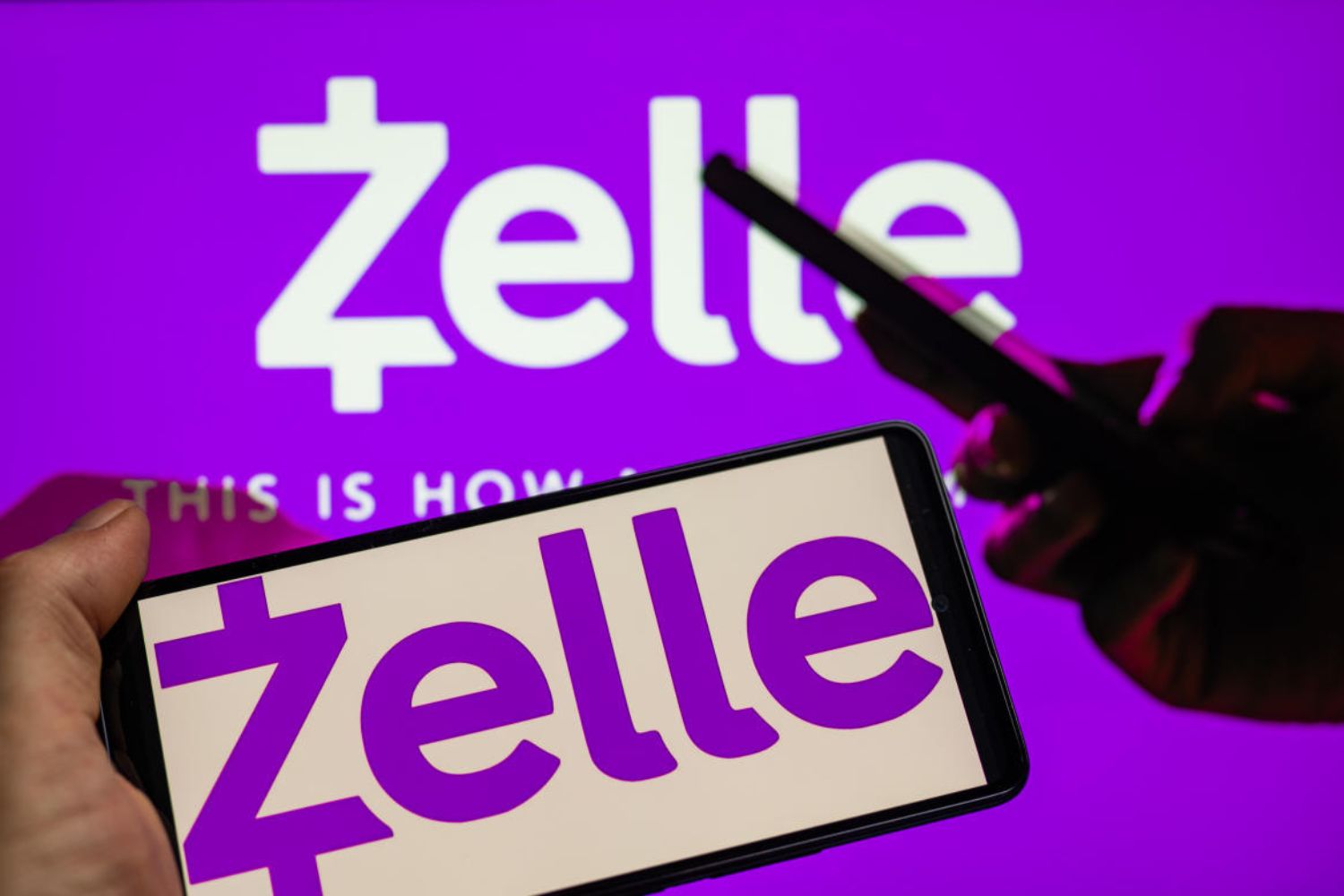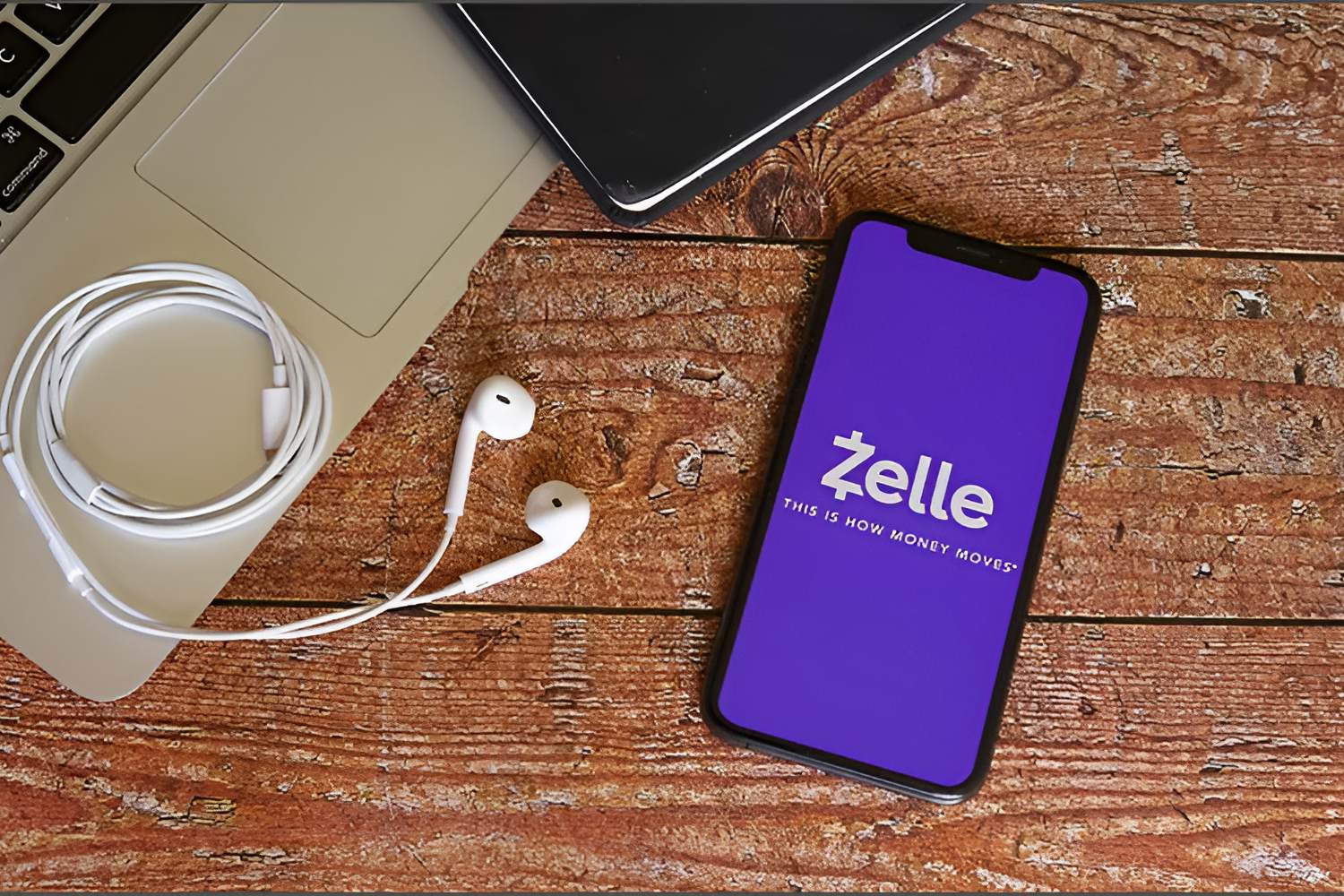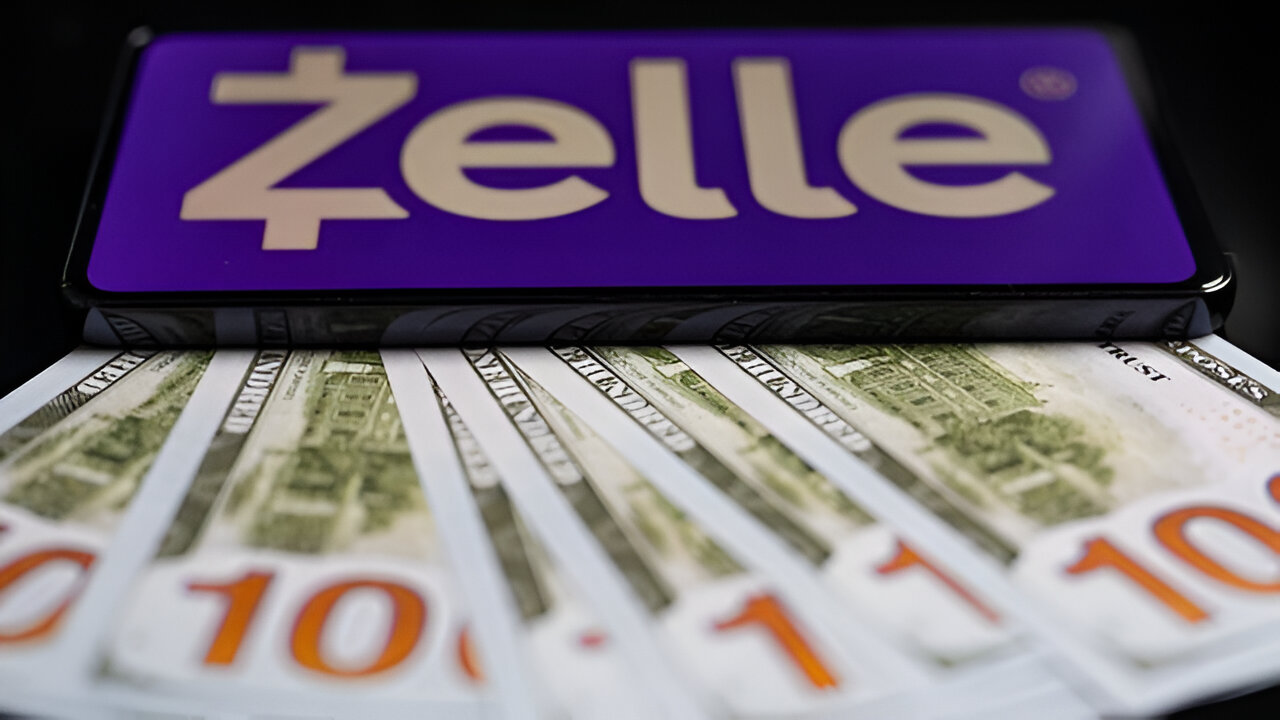Possible Reasons for Zelle Delays
While Zelle is a popular and convenient way to send and receive money, there are instances where users may experience delays in the transaction process. These delays can be frustrating, especially if you need the funds to be transferred quickly. Understanding the possible reasons for Zelle delays can help shed some light on the situation and provide some clarity. Here are some potential factors that can contribute to Zelle delays:
- Technical Glitches: Like any digital platform, Zelle may encounter technical issues from time to time. These glitches could lead to delays in processing your transactions.
- Insufficient Funds in Sender’s Account: If the sender does not have enough money in their account to cover the transfer, it can cause a delay in the transaction. In such cases, the sender will need to ensure that their account has sufficient funds before initiating the transfer.
- Verification and Validation Process: Zelle has security measures in place to protect users from fraudulent activities. Sometimes, the verification and validation process may take longer than expected, resulting in delays in completing the transaction.
- Delays Due to Bank Policies: Different banks have their own policies and procedures for processing Zelle transactions. These variations can cause delays if the sender or recipient’s bank takes longer than usual to process the transfer.
- Holidays and Weekends: Zelle operates within the banking system, which means that transfers may not be processed on holidays and weekends. If you initiate a transfer during these times, it may be delayed until the next business day.
- Network Connectivity Issues: Sometimes, delays can occur due to network connectivity problems between Zelle, the sender’s bank, and the recipient’s bank. These issues are typically temporary and can be resolved once the connection is restored.
- Incorrect or Incomplete Recipient Information: Double-checking the recipient’s information, such as phone number or email address, is crucial to ensure a smooth transaction. If the provided information is incorrect or incomplete, the transfer may be delayed or fail altogether.
- Zelle Service Outage or Maintenance: Occasionally, Zelle may experience service outages or undergo maintenance to improve its functionality. During these periods, transactions may be delayed until the service is fully operational again.
- Transaction Limitations and Restrictions: Zelle has certain transaction limitations and restrictions in place to prevent misuse and fraud. Exceeding these limits or violating the restrictions can cause delays in processing your transfer.
- Fraud Prevention Measures: Zelle has stringent security measures in place to protect users from fraudulent activities. If any transaction raises suspicion, additional checks may be performed, causing delays in processing the transfer.
These are some of the potential reasons why you may experience delays in your Zelle transactions. It’s important to note that while delays can be frustrating, they are often temporary and can be resolved once the underlying issue is resolved. If you encounter a significant delay or have questions regarding a specific transaction, it’s recommended to contact Zelle’s customer support or reach out to your bank for assistance.
Technical Glitches
One of the possible reasons for delays in Zelle transactions is the occurrence of technical glitches. Like any digital platform, Zelle may occasionally encounter technical issues that can disrupt the smooth processing of transactions.
These glitches can range from minor hiccups to more severe problems that affect the entire system. They can manifest in various ways, such as slow response times, errors during transaction initiation, or even complete system outages.
When technical glitches occur, it can lead to delays in the processing of Zelle transactions. For example, if the platform experiences a slow response time, it may take longer for your transaction to be initiated and completed. Similarly, if there are errors during the transaction initiation process, you may need to retry the transaction or contact customer support for assistance.
In some cases, Zelle may need to perform system maintenance or upgrades to improve its functionality. During these periods, the platform may be temporarily unavailable or experience limited functionality. This can result in delays in processing transactions until the maintenance is completed and the system is fully operational again.
It is important to note that while technical glitches can be frustrating, they are generally beyond the control of individual users. The best course of action in such situations is to remain patient and wait for the issues to be resolved. If you encounter a technical glitch that is causing a significant delay in your Zelle transaction, it is advisable to reach out to Zelle’s customer support for further assistance and guidance.
In summary, technical glitches can occur on the Zelle platform, leading to delays in the processing of transactions. These glitches may manifest as slow response times, errors during transaction initiation, or system outages. While these issues are usually temporary, it is recommended to contact Zelle’s customer support if you encounter significant delays or require further assistance with your transaction.
Insufficient Funds in Sender’s Account
Another potential reason for delays in Zelle transactions is when the sender does not have sufficient funds available in their account to cover the transfer. Zelle requires that the sender’s account has enough funds to complete the transaction successfully.
When the sender initiates a transfer with insufficient funds, the transaction may be delayed or declined. In such cases, the sender will need to ensure that their account has enough money to cover the transfer before initiating it again.
If the sender’s account does not have sufficient funds, the transfer may be placed on hold until the account is topped up with the necessary funds. This delay can be frustrating, especially if the recipient is in urgent need of the transferred funds.
It is crucial for Zelle users to regularly check their account balance before initiating any transactions. This ensures that there are enough funds available to complete the transfer promptly. If there is a shortage of funds, it is recommended to deposit or transfer sufficient funds into the account before initiating the Zelle transaction.
In some cases, the delay caused by insufficient funds may be resolved quickly once the sender adds the necessary funds to their account. However, it is important to keep in mind that the availability of funds is dependent on the sender and their banking institution’s policies and processing times.
In summary, delays in Zelle transactions can occur when the sender does not have enough funds in their account to cover the transfer. It is crucial for users to ensure that their account has sufficient funds before initiating any transactions to avoid unnecessary delays. If a transfer is delayed due to insufficient funds, it is recommended to deposit the necessary funds into the account to complete the transaction promptly.
Verification and Validation Process
The verification and validation process is an important step in ensuring the security of Zelle transactions. Zelle implements various measures to protect users from fraudulent activities, and part of this process involves verifying the authenticity of the transaction and the users involved.
During the verification and validation process, Zelle may perform background checks and authentication procedures to confirm the identity and legitimacy of the sender and recipient. This can include verifying the provided contact information, such as phone number or email address, and conducting additional security checks.
While the verification and validation process is essential for maintaining the integrity of the platform, it can sometimes result in delays in completing Zelle transactions. The time required for this process can vary depending on the complexity of the transaction and the level of verification needed.
In some cases, the verification and validation process may require manual review by Zelle’s security team, leading to additional processing time. This is particularly true for transactions that raise suspicion or trigger fraud prevention measures.
If your Zelle transaction is delayed due to the verification and validation process, it is generally advisable to wait patiently until the checks are completed. Attempting to rush or bypass these security measures may result in further delays or potential issues in the future.
To minimize the chances of delays during the verification and validation process, it is important to provide accurate and complete information when initiating Zelle transactions. Double-checking the recipient’s contact information and ensuring that it matches their registered Zelle account can help expedite the process.
In summary, the verification and validation process is an integral part of Zelle’s security measures. It aims to authenticate the users and ensure the legitimacy of the transactions. While this process can sometimes cause delays, it is important to cooperate and provide accurate information to facilitate a smooth and secure transaction.
Delays Due to Bank Policies
Zelle transactions rely on the banking system to facilitate the transfer of funds between different accounts. As a result, delays in Zelle transactions can occur due to the specific policies and procedures of the sender’s and recipient’s banks.
Each bank has its own set of rules and guidelines for processing Zelle transactions. These policies can differ in terms of processing time, cut-off times for transfers, and any additional verification steps that may be required.
For example, certain banks may have longer processing times for Zelle transfers, which can result in delays compared to other banks with quicker processing times. This difference in bank policies can cause discrepancies in the speed at which Zelle transactions are executed.
In addition, banks may have specific cut-off times for transfers, particularly if they operate on a batch processing system. If a Zelle transfer is initiated after the cut-off time, it may not be processed until the next batch processing cycle, leading to a delay in the recipient receiving the funds.
Furthermore, some banks may require additional verification steps or have stricter security measures in place for certain types of Zelle transactions. These measures, while designed to protect users, can introduce additional processing time, resulting in delays for the transaction to be completed.
If you experience a delay in a Zelle transaction due to bank policies, it is recommended to reach out to your bank for further clarification. They can provide insight into their specific policies and offer assistance in resolving any issues or providing updates on the status of the transfer.
To minimize delays, it is advisable to familiarize yourself with your bank’s policies regarding Zelle transactions. This can include understanding their processing times, cut-off times, and any additional verification requirements they may have. Taking these factors into account before initiating a Zelle transfer can help ensure a smoother and timelier transaction.
In summary, delays in Zelle transactions can arise from the differing policies and procedures of the sender’s and recipient’s banks. These policies can impact the processing time, cut-off times, and verification steps required for Zelle transfers. It is important to be aware of your bank’s specific policies to minimize any potential delays and seek assistance from your bank if you encounter any issues with a Zelle transfer.
Holidays and Weekends
Zelle transactions operate within the banking system, which means that the processing of transfers may be affected by holidays and weekends. During these times, delays in Zelle transactions can occur, as banks typically have reduced operating hours or limited processing capabilities.
On holidays, such as national or public holidays, banking institutions may be closed or have limited staffing. This can result in a backlog of transactions that need to be processed once the banks resume regular operations, leading to delays in the completion of Zelle transfers.
Similarly, weekends can also contribute to delays in Zelle transactions. Many banks have limited or no processing capabilities on Saturdays and Sundays, which means that any transfers initiated during this time may not be processed until the next business day.
If you initiate a Zelle transfer on a holiday or a weekend, it is important to be aware that it may not be processed until the next business day when the banks return to full operation. This can lead to a delay in the recipient receiving the funds.
Additionally, it’s worth noting that some banking institutions may have different policies regarding holidays and weekends. While some banks may process Zelle transactions on weekends or have extended hours on certain holidays, others may adhere strictly to regular business days and hours.
To minimize delays caused by holidays and weekends, it is advisable to carefully consider the timing of your Zelle transactions. If time is of the essence, it may be more beneficial to initiate the transfer during regular business hours on a non-holiday weekday.
In summary, delays in Zelle transactions can occur during holidays and weekends when banks have reduced operating hours or limited processing capabilities. Initiating transfers during these times can result in delays until the next business day when the banks resume normal operations. It is important to plan accordingly and consider the timing of your Zelle transactions to minimize any potential delays.
Network Connectivity Issues
Network connectivity plays a crucial role in the smooth processing of Zelle transactions. However, like any digital platform, Zelle can be affected by network connectivity issues that may cause delays in completing transfers.
Network connectivity issues can arise due to various reasons, including internet outages, server maintenance, or disruptions in the communication between Zelle, the sender’s bank, and the recipient’s bank.
When network connectivity issues occur, it can hinder the communication between the involved parties, leading to delays in the processing of Zelle transactions. For example, if there is an internet outage, it may not be possible to access or use the Zelle platform, thus delaying the initiation and completion of transfers.
In some cases, the connectivity issues may specifically affect the communication between Zelle and the sender’s bank or recipient’s bank. This can result in delayed and intermittent transfer status updates, making it difficult to determine the exact progress of the transaction.
While network connectivity issues are typically temporary, they can still cause delays in Zelle transactions until the connectivity is restored and the communication between the parties involved is reestablished.
To minimize the impact of network connectivity issues on your Zelle transactions, you can try the following steps:
- 1. Ensure that your internet connection is stable and functioning properly.
- 2. Check for any known service outages or maintenance updates from Zelle or your bank.
- 3. Retry the transaction after some time when the network connectivity is expected to be more stable.
- 4. Contact your internet service provider if you are experiencing prolonged connectivity issues.
If you consistently experience delays due to network connectivity issues, it is advisable to contact Zelle’s customer support or your bank’s support team for further assistance.
In summary, delays in Zelle transactions can occur due to network connectivity issues, such as internet outages or disruptions in the communication between Zelle, banks, and users. These issues are typically temporary and can be resolved once the connectivity is restored. To minimize delays, ensure a stable internet connection and contact customer support if the connectivity issues persist.
Incorrect or Incomplete Recipient Information
One common reason for delays in Zelle transactions is when incorrect or incomplete recipient information is provided during the transaction initiation process. It is crucial to double-check and ensure the accuracy of the recipient’s contact information, such as their phone number or email address, to avoid any unnecessary delays.
If the provided recipient information is incorrect or incomplete, Zelle may not be able to process the transaction successfully. In such cases, the transfer may be delayed or even fail altogether. It is essential to enter the recipient’s information accurately to ensure that the funds are sent to the intended recipient without any complications.
It is also worth noting that Zelle relies on the contact information registered with the recipient’s bank to facilitate the transaction. If the recipient has not registered their contact information or if the information does not match what you have entered, it can lead to delays or transaction errors. Verifying the recipient’s contact information with them before initiating the transfer is a proactive step to prevent delays.
In addition, providing additional details such as the recipient’s full name or any reference numbers associated with the transaction can help expedite the process. Including these details can assist Zelle and the recipient’s bank in accurately identifying and processing the transfer in a timely manner.
If you realize that you have entered incorrect recipient information after initiating the transaction, it is best to contact Zelle’s customer support or your bank for assistance. They may be able to provide guidance on how to rectify the situation and minimize any potential delays.
In summary, delays in Zelle transactions can occur when incorrect or incomplete recipient information is provided during the transaction initiation process. It is important to double-check and ensure the accuracy of the recipient’s contact information to ensure a smooth and timely transfer. Including additional details, such as the recipient’s full name or reference numbers, can further assist in expediting the process. If any issues arise, it is best to reach out to Zelle’s customer support or your bank for further assistance.
Zelle Service Outage or Maintenance
As with any online service, Zelle may experience occasional service outages or undergo maintenance to enhance its functionality and ensure a seamless user experience. These planned or unplanned disruptions can result in delays in completing Zelle transactions.
During a service outage, the Zelle platform may be temporarily unavailable or experience limited functionality. This means that users may not be able to initiate or complete transactions until the service is fully operational again.
Maintenance activities, on the other hand, are necessary to keep the Zelle platform running smoothly and securely. These routine maintenance procedures involve updating software, optimizing performance, and implementing new features. During maintenance, certain functionalities may be limited, resulting in delays in processing Zelle transactions.
Zelle generally strives to minimize disruptions during service outages and maintenance by scheduling them during low-traffic periods. However, unforeseen circumstances or urgent system updates may require immediate attention, resulting in temporary disruptions and delays.
If you encounter a delay in your Zelle transaction due to a service outage or maintenance, the best course of action is to remain patient and wait for the platform to be fully operational again. It is advisable to avoid attempting multiple transactions or making unnecessary changes to your account, as this can potentially complicate the restoration process.
Staying updated on any scheduled maintenance or known service disruptions can also help you anticipate and plan your Zelle transactions accordingly. Checking Zelle’s official website or their customer support channels can provide information about any ongoing or upcoming service outages or maintenance activities.
In summary, delays in Zelle transactions can occur during service outages or maintenance periods when the platform may be temporarily unavailable or have limited functionality. While these disruptions can cause delays, it is recommended to wait for the service to be fully operational again. Properly planning your transactions and staying informed about any scheduled maintenance or known service outages can help minimize potential delays.
Transaction Limitations and Restrictions
Zelle has certain limitations and restrictions in place to ensure the security and integrity of transactions. These limitations and restrictions can sometimes result in delays when users exceed the predefined limits or violate any existing restrictions.
Each bank sets its own transaction limits for Zelle transfers, which can vary from one institution to another. These limits determine the maximum amount of money that can be transferred within a specified time frame. If a user attempts to exceed these limits, the transaction may be delayed or rejected.
Furthermore, there may be restrictions on certain types of transactions or specific recipients. For example, some banks may have limitations on international transfers or transfers to certain high-risk regions. If a user tries to initiate a transaction that falls under these restrictions, it may be delayed or rejected.
Additionally, Zelle has implemented measures to prevent fraudulent activities, such as suspicious transaction monitoring. If a transaction raises suspicion, it may undergo additional scrutiny or be subject to manual review, leading to delays in processing the transfer.
When initiating a Zelle transfer, it is important to be aware of the transaction limitations and restrictions associated with your bank. Familiarize yourself with the maximum transfer amounts, any specific restrictions, and any additional security measures that may be in place.
If you encounter a delay in your Zelle transaction due to transaction limitations or restrictions, it is recommended to contact your bank’s customer support. They can provide further information regarding the specific limitations or restrictions and guide you on how to proceed with the transaction.
By adhering to the transaction limits and restrictions set by Zelle and your bank, you can help ensure that your transfers are processed smoothly and without unnecessary delays.
In summary, Zelle has transaction limitations and restrictions in place to maintain the security of transactions. Exceeding these limits or violating any existing restrictions can result in delays in completing your Zelle transfers. Familiarize yourself with the applicable limits and restrictions to minimize potential delays and reach out to your bank’s customer support for assistance if needed.
Fraud Prevention Measures
Zelle takes fraud prevention seriously and implements various measures to protect users from potential fraudulent activities. While these measures are crucial for maintaining the security of the platform, they can occasionally lead to delays in Zelle transactions.
One of the fraud prevention measures that Zelle employs is transaction monitoring. The platform analyzes transactions for any suspicious or unusual activities, such as large transfers to unknown recipients or multiple transactions within a short period of time. If a transaction raises suspicion, it may be subject to additional scrutiny or manual review, causing delays in processing.
In some cases, Zelle may require additional verification or authentication steps, especially for transactions that exhibit high-risk characteristics. These steps can include contacting the sender or recipient directly to confirm the transaction details, resulting in some processing delays.
Furthermore, Zelle maintains a robust security infrastructure to protect users’ personal and financial information. This includes encryption technologies, firewalls, and other security protocols. Occasionally, upgrades or maintenance to this security infrastructure may be necessary, leading to temporary delays in transaction processing.
If your Zelle transaction is delayed due to fraud prevention measures, it is important to remain patient and cooperate with the necessary verification and authentication processes. Trying to expedite or bypass these security measures may result in further delays or potential issues with the transaction.
To minimize delays caused by fraud prevention measures, ensure that you are providing accurate and up-to-date information during the transaction initiation process. Double-check recipient information, transaction details, and any additional verification requirements to ensure a smooth and timely transaction.
If you have concerns or questions regarding a delayed Zelle transaction related to fraud prevention measures, it is advisable to contact Zelle’s customer support or reach out to your bank’s customer support for assistance. They can provide further information and guidance to help resolve any issues and facilitate the completion of your transaction.
In summary, Zelle implements various fraud prevention measures to protect users from potential fraudulent activities. While these measures are essential for maintaining security, they can occasionally result in delays in transaction processing. By providing accurate information and cooperating with any necessary verification processes, users can help minimize these delays and ensure a secure transaction.

























